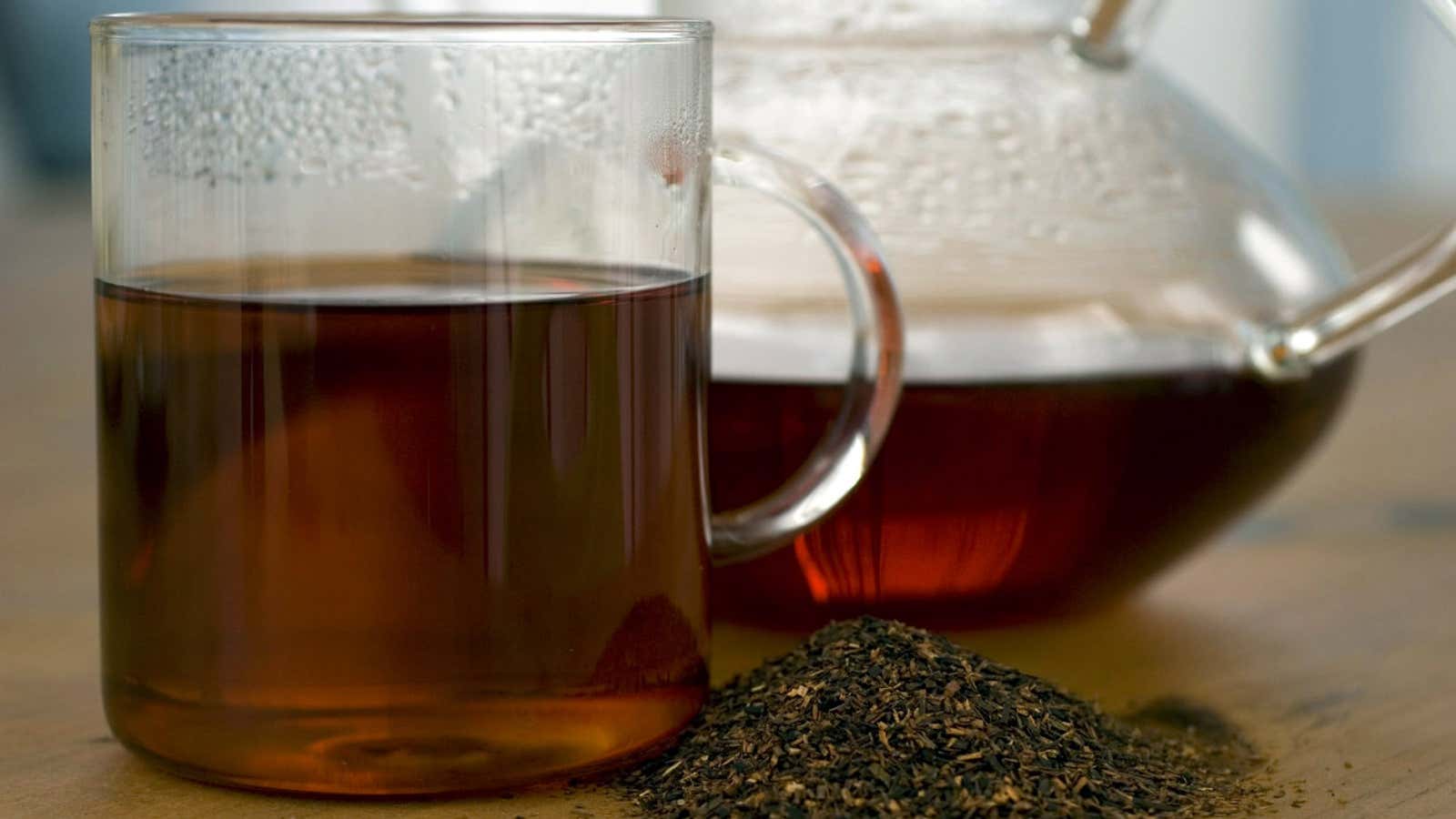France is famously protective of its signature food and beverage products: If you call your bubbly wine “champagne” you will eventually hear from the lawyers at the Comité Interprofessionnel du Vin de Champagne, for example. So when the French firm Compagnie de Trucy had the audacity to try to trademark rooibos—the herbal tea that exclusively grows in South Africa, and is as South African as champagne is French—it caused an uproar that may lead to new rules that would treat rooibos like some of the world’s most famous wines.
The tea is famous for its distinctive taste; it’s caffeine-free with strong anti-oxidant properties. It’s also incorporated into products, from food to beauty products, and has drawn the interest of companies like Starbucks and Nestles. Production has more than than tripled to 14,000 metric tons over the last 10 years.
Why has it taken the action of a French company to spur the country to protect this quintessentially South African product, which was exported for the first time as far back as 1904? Especially since this has happened before: A Texan company tried to trademark rooibos a decade ago, eventually settling out of court in 2005. Soekie Snyman of the South African Rooibos Council says individual companies have already registered their individual products, but protecting rooibos itself is much more complicated, and requires getting a Geographical Indication under the European Union’s rules. That process is now underway.
It remains to be seen whether these maneuvers will stop the French company. But if South Africa succeeds, it will also lock down protection for other similarly unique products like honeybush, a South African herbal tea with a lower profile but as much potential for the international spotlight as rooibos.
